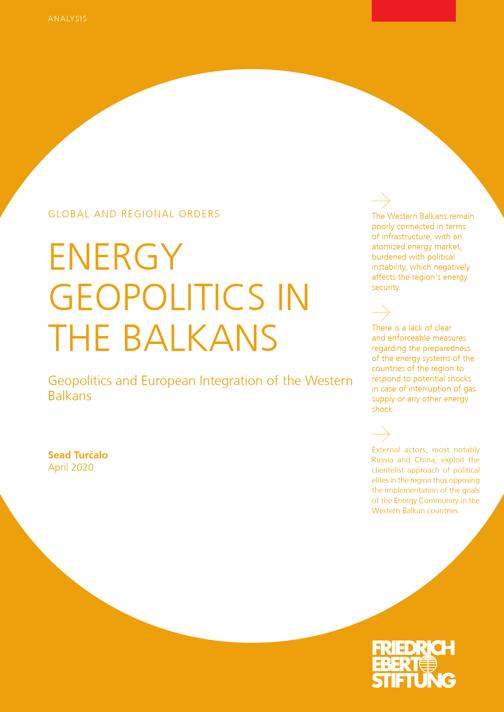Publikationen der StiftungEnergy geopolitics in the Balkans Titel
Titelaufnahme
- TitelEnergy geopolitics in the Balkans : geopolitics and European integration of the Western Balkans
- Verfasser
- Körperschaft
- Erschienen
- Parallele Sprachausgabe
- Umfang12 Seiten : Illustrationen, Karten
- AnmerkungLiteraturverzeichnis Seite 12
- SpracheEnglisch
- SerieGlobal and regional ordersAnalysis
- DokumenttypDruckschrift
- Schlagwörter
- Geografika
- ISBN978-9958-884-92-4
- URN
- Das Dokument ist frei verfügbar
- Nachweis
- Archiv
The Western Balkans remain poorly connected in terms of infrastructure, with an atomized energy market, burdened with political instability, which negatively affects the region's energy security. There is a lack of clear and enforceable measures regarding the preparedness of the energy systems of the countries of the region to respond to potential shocks in case of interruption of gas supply or any other energy shock. External actors, most notably Russia and China, exploit the clientelist approach of political elites in the region thus opposing the implementation of the goals of the Energy Community in the Western Balkan countries. In order to fully exploit its potential (geo)political actor in the regional energy area, the European Union should move beyond its regulatory and technocratic approach through the affirmation of projects such as the Ionian-Adriatic Pipeline.
